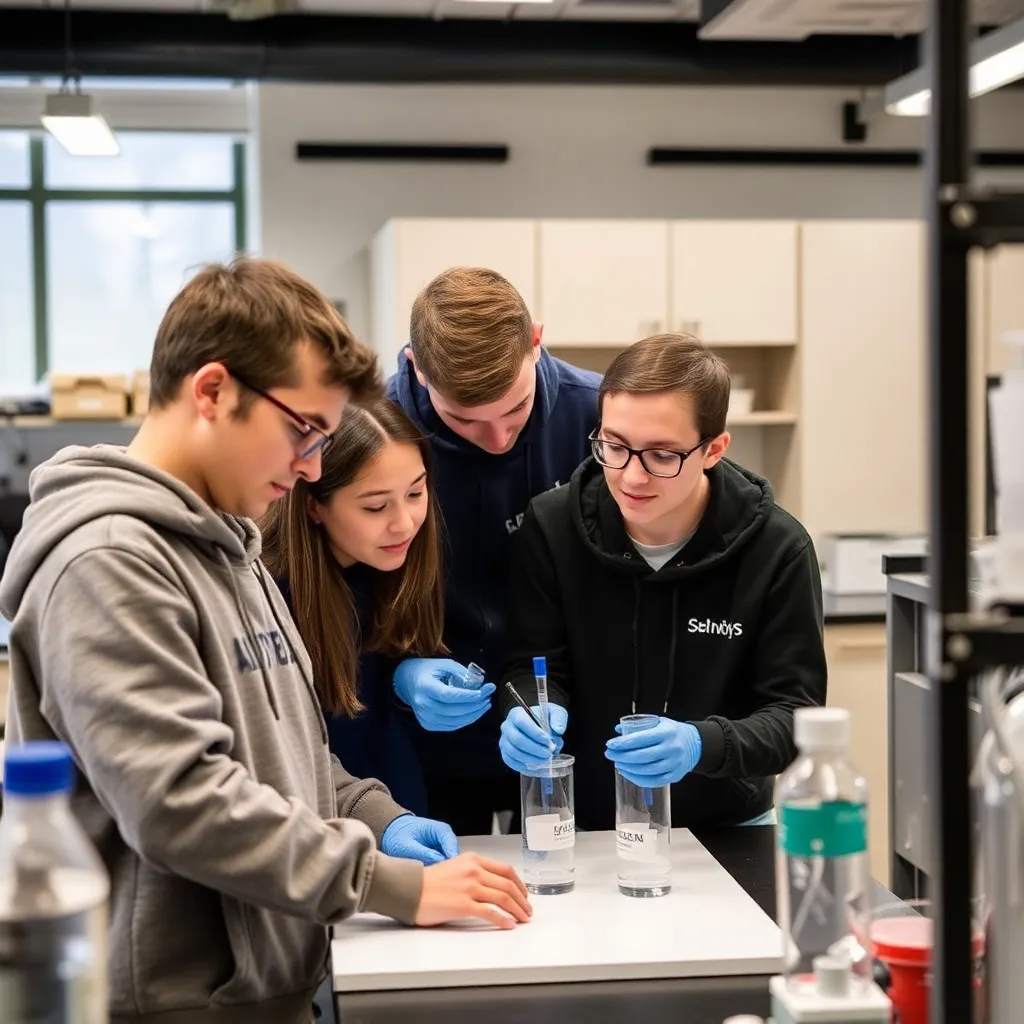

Students collaborating on innovative space research experiments in lab.
Columbia, South Carolina – Midlands Technical College (MTC) has taken a giant leap into the world of space research by becoming the only college in South Carolina selected to participate in the Student Spaceflight Experiments Program (SSEP). This selection is a unique opportunity for students to send scientific research to the International Space Station (ISS), enhancing their educational experience while contributing to important scientific knowledge.
A dedicated team of six, consisting of four students—Craig Elliot, Robert Ferguson, Emmi Rosario, and Will Turner—along with lab technician Kayioko Jenkins-Fisher and faculty advisor Jordi Fernandez, is conducting the research. Together, they focus on understanding the effects of microgravity on calcium oxalate crystal production in edible greens, particularly in plants like spinach.
The research centers on how microgravity may increase the production of calcium oxalate crystals, which can contribute to kidney stone formation. This study is significant as it will offer insights into what nutritional sources can be sustainably grown during long-duration spaceflights—a vital consideration as humanity looks towards longer missions in space.
This week, the MTC Mavericks team traveled to the Kennedy Space Center in Florida to witness the launch of their experiment into space. The launch is part of the SSEP Mission 18, which includes a total of 37 educational institutions across the United States. The astronauts aboard the ISS will conduct the experiments over a six-week period before returning the samples back to Earth.
The significance of MTC’s involvement in the SSEP goes beyond just student experience. With the potential for space missions to span several months or even years, understanding how plants react in microgravity can help establish viable agricultural practices for future deep-space missions. Findings from this study will help inform what plants could be cultivated in space to support long-term human presence and nutritional needs.
Upon the completion of their experiments in microgravity, the MTC team will analyze their findings. They will compare the results from space with their control experiments conducted on Earth. The research team will ultimately present their conclusions at a conference, likely scheduled to take place at the Smithsonian National Air and Space Museum in Washington, D.C.
This innovative experience not only highlights the academic capabilities of the students at Midlands Technical College but also positions them as contributors to the future of space exploration. By exploring how plants grow and react in microgravity, MTC students are taking part in groundbreaking science that may influence how we grow food in space.
More information about the Student Spaceflight Experiments Program and its implications for space research can be found by visiting the official SSEP and NASA websites.
News Summary South Carolina residents are bracing for a significant winter weather event with freezing…
News Summary On March 7, 2025, Brad Sigmon became the first person executed by firing…
News Summary Wilmington has officially become the fastest-growing metro area in North Carolina, showing a…
News Summary Charleston is set to host a vibrant networking event, Business & Brews, at…
News Summary Lexington County officials are proposing a new interstate exit off Interstate 20 at…
News Summary At this year’s St. Patrick’s Day Festival, sophomore Katie DeMartini wowed the crowd…